Insider Advice On Your Pipes From A Plumber
 19 February 2019
19 February 2019 
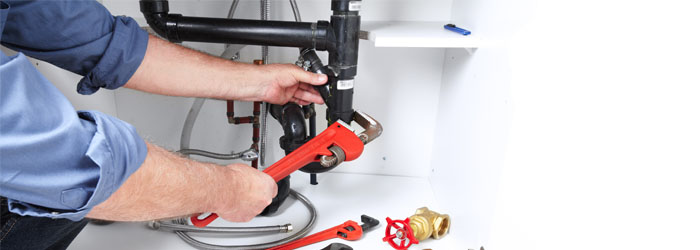
Six tips from an expert on protecting your pipes from breakdowns
When your pipes get clogged or you spring a serious water leak, there's nothing quite like that feeling of relief when a plumber rings your doorbell. Suddenly, you're pretty sure that everything will turn out all right, and you probably won't be moving out of the house even temporarily.
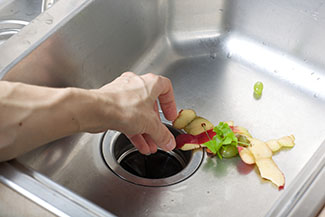
On the other hand, there are lots of problems with pipes clogging up that can be prevented before they start, plumbers tell us. If you avoid certain practices, you can save yourself a lot of problems and frustration.
Recently, we received suggestions from George Cathey, service manager for Isley's Home Service Inc. in Gilbert and Phoenix, on how to give your plumbing gentle and sensible care.
1 | Don't pour gunk down the kitchen sink drain/disposal.
You don't want to pour a bunch of grease or stuff large amounts of starchy foods into your garbage disposal. "It's a dilemma, because we all want to clean as much off of our dishes as possible before we put them into the dishwasher," said Cathey, "but potato skins, rice, pasta and stringy celery can cause problems, especially after years of build-up."
When you're rinsing everything down into the disposal, always use cold water instead of hot, he advised. "It may seem counter-intuitive, but hot water liquefies any fats in the garbage and drives that liquid farther down the drain. Once you stop running the hot water, the fat will harden and clog the pipe."
2 | Use liquid detergent instead of powdered detergent.
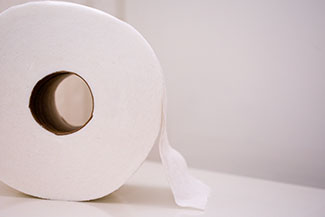
In dishwashers and washing machines it's better to use liquid detergent. And don't use detergent "pods" either. Powdered detergents won't always fully dissolve and go smoothly down pipes. It can build up in your plumbing over time. The remains of those handy pods can stick to your pipes as well.
3 | Flush away only toilet paper in the bathroom.
Don't flush paper towels or other heavier paper material into your pipes. Even wet wipes and other sanitary products should be tossed out instead of flushed.
4 | Learn how to clean faucet aerators and shower heads.
Due to hard water, mineral deposits can build up on fixtures and suddenly, water is not flowing steadily from your faucet. To fix this problem, remove the aerator - the little piece of pipe at the faucet's tip. Overtime, the aerator may have become corroded or have bits of stone caught in it. In the process, sketch a diagram or take a picture of how the aerator and washers fit together for reassembly later. You can clean the aerator with a soft toothbrush and light water-vinegar mixture and then put everything back together.
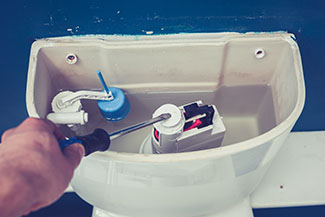
Use the same process for a clogged showerhead, though it will be tougher to remove and reassemble than an aerator. These devices can benefit from overnight soaking in a mild vinegar-water solution, followed by a good scrub before reinstallation. If you can't get the showerhead off, tie a plastic bag filled with mild vinegar-water onto the showerhead and scrub off deposits in the morning.
5 | Invest in nets and screens for drains in your tub and shower.
Using nets and screens can help you prevent hair and other debris from going down the drain into your pipes.
6 | Don't use toilet cleaners that go directly into your toilet tank.
These cleaners can "eat" away at the metal and rubber equipment in the tank and soon you'll have to replace part of the mechanism.
Whatever your problem, of course, a licensed and certified plumber can provide a solution to make your home more comfortable and maintain plumbing in great working order.
Planning to install a gas stove or fireplace? Call a plumber
What you might not know about plumbers is that many of them are gas fitters as well and you may need their help in the installation and operation of gas furnaces, stoves, barbecues and firepits. So, call a licensed plumber and don't cut corners on doing the installation the right way.
What's New and Better in the World of Plumbing:
If you're having trouble with your plumbing, it's comforting to know that plumbers now have new tools for solving problems with your pipes:
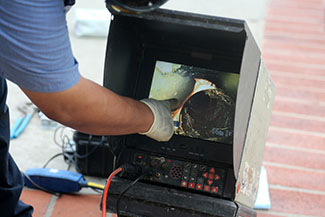
- Epoxy pipe lining: Older sewer pipes are often susceptible to corrosion and can develop holes and leaks. But if the pipe has not fallen apart, it may be possible to coat its interior with epoxy, so you can lengthen its useful life.
- Sewer cameras and electronic leak locators: Cameras can be run through sewer pipes to find areas of damage and corrosion. Special microphones can pick up the sound of water leaking out of a crack or hole. Thermal imaging of leaky areas can be done with special infrared digital cameras. Hidden damp areas can be found inside walls using a tiny radio transmitter.
- Water conservation: If you want to cut down your water use, you can install low flow showerheads and toilets that will only take 2 gallons or less to flush.
- New ways to deliver hot water: Among other solutions, point-of-use water heaters can be installed in bathrooms far from the main water heater; tankless water heaters that produce hot water more quickly; and insta-hot dispensers can be installed near a kitchen sink.
- Water jetting: High pressure water jets can sometimes be used to clear up clogs and clean pipes as well.
###
Photo Credits:
- Rosie on the House
RELATED CONTENT:
- Blog: Tuning Up Your Toilet
- Blog: Replacing Water Supply Lines
- Blog: All About Garbage Disposals
- DIY FAQ: Water Treatment Consumer Guide
- DIY FAQ: There's a Water Heater Revolution Going On!
- Podcast: Preventing Plumbing Disasters
Print this page
recent post
- Duck, Duck, Duct! How Often Should Ductwork Be Cleaned?
- Vinyl vs. Fiberglass Windows: Which Is The Better Choice Of Replacement Window?
- We May Be The Grand Canyon State, But The Rocky Mountains Are Important For Arizona
- Welcome to Arizona! Things A Newbie to Arizona Should Know
- The Pros & Cons of Buying A Flipped House
- Getting In On The Ground Floor
- Why It’s More Critical Than Ever To Get Your AC Serviced Before Summer
- The Reality of Remodeling
- What To Look For When Comparing Your Roofing Quotes
- What To Expect When Buying New Windows & Doors
